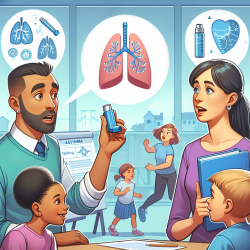Introduction
In the realm of drug research, the integration of experiential knowledge—specifically the personal experiences of researchers with drug use—remains a contentious yet potentially transformative area of study. The research article titled, “He’s used drugs - he’s biased! He’s not a drug user - what would he know!” delves into the complex dynamics of drug researchers' personal experiences and their professional disclosures. This blog explores how practitioners can enhance their skills and research outcomes by embracing the insights from this study.
The Value of Experiential Knowledge
Experiential knowledge refers to the insights and understanding gained through personal experiences. In drug research, this can mean researchers who have used drugs bring a unique perspective that can inform study design, participant interaction, and data interpretation. The study found that 86% of drug researchers reported lifetime drug use, and a significant portion disclosed this use to colleagues, albeit with varying degrees of openness.
For practitioners, acknowledging and integrating experiential knowledge can lead to more nuanced research questions and a deeper understanding of the subject matter. It challenges the traditional dichotomy of objectivity versus bias, suggesting that lived experiences can enrich the research process rather than detract from it.
Overcoming Stigma and Professional Risks
One of the major barriers to integrating experiential knowledge in drug research is the stigma associated with drug use. Researchers fear that disclosing personal drug use could jeopardize their careers, funding opportunities, and professional credibility. The study highlights that only 11% of researchers disclosed their drug use in their scholarship, indicating a significant gap between personal experiences and professional discourse.
Practitioners can work towards creating an environment where experiential knowledge is valued and stigma is reduced. This involves advocating for institutional policies that protect researchers who choose to disclose their experiences and fostering a culture of openness and acceptance within academic and professional settings.
Practical Steps for Practitioners
- Encourage Open Dialogue: Create forums and workshops where researchers can share their experiences without fear of judgment or repercussions.
- Advocate for Policy Changes: Work towards implementing institutional policies that support the disclosure of experiential knowledge and protect researchers from discrimination.
- Integrate Lived Experiences in Research: Use personal experiences to inform research questions, study design, and participant engagement strategies.
- Promote Reflexivity: Encourage researchers to reflect on how their personal experiences influence their research and to document these reflections as part of their scholarly work.
Conclusion
Integrating experiential knowledge into drug research presents an opportunity to enrich the field with diverse perspectives and insights. By addressing the stigma and risks associated with disclosure, practitioners can create a more inclusive and comprehensive research environment. This approach not only enhances the quality of research but also contributes to a broader understanding of drug use and its implications.
To read the original research paper, please follow this link: “He’s used drugs - he’s biased! He’s not a drug user - what would he know!”: A cross-sectional, online study of drug researchers’ experiential knowledge of drug use and disclosure.










